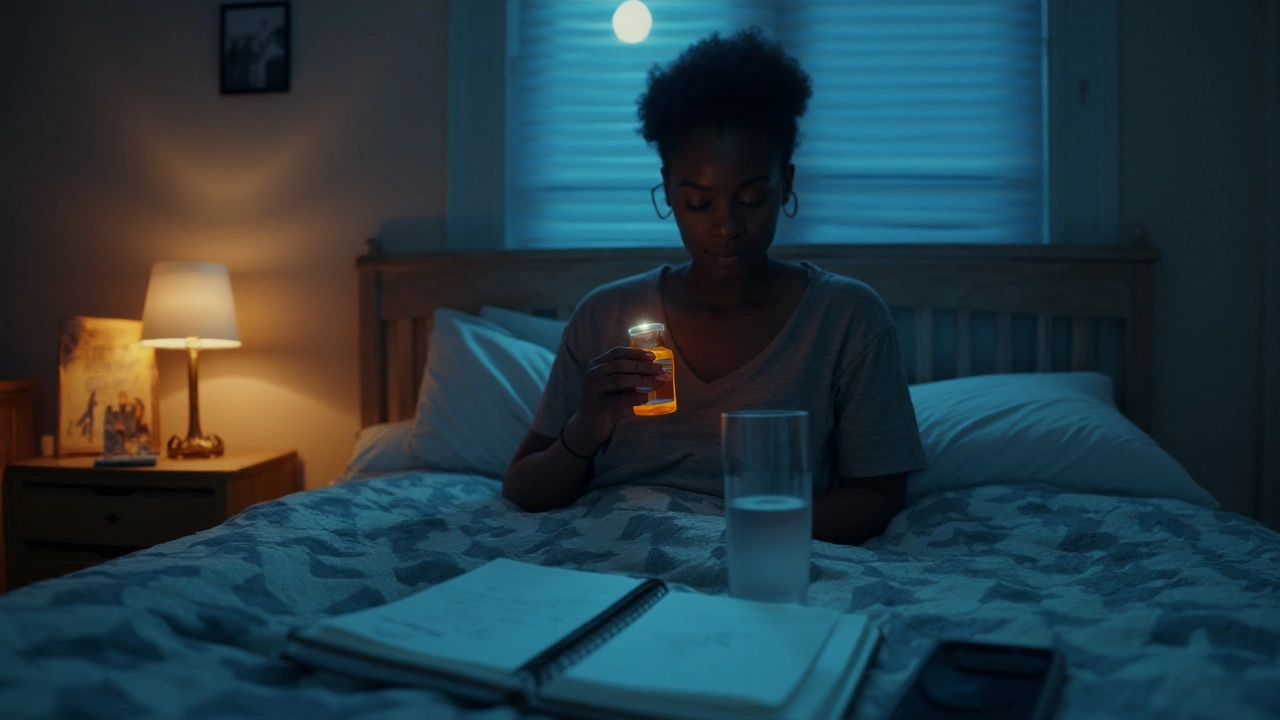Epilepsy Medication and Sleep – What You Need to Know
If you have epilepsy, you already know that a good night’s sleep helps keep seizures under control. But many anti‑seizure drugs mess with your bedtime routine, leaving you either too sleepy or wide awake. Understanding why this happens and what you can do about it makes a big difference in daily life.
How seizure medicines change your sleep pattern
Every drug works a little differently, so the way it affects sleep varies from person to person. Carbamazepine and phenytoin often cause daytime fatigue because they calm brain activity. That can be helpful if you’re prone to nighttime seizures, but it may also make waking up feel like a chore.
Levetiracetam (Keppra) is known for causing insomnia in some users. People report racing thoughts or restlessness that keep them up for hours after the dose. Valproate can do the opposite – it may increase deep sleep but also lead to snoring and breathing problems.
Gabapentin and pregabalin are usually prescribed for nerve pain, yet they double as sleep aids because they make you drowsy. The downside is a “hangover” feeling the next day if the dose is taken too late at night.
Even newer meds like Lacosamide or Brivaracetam can shift REM sleep, which affects memory and mood. In short, most seizure drugs touch on one of three sleep areas: making you sleepy, keeping you up, or changing the quality of sleep stages.
Tips to get better rest while on seizure meds
First, talk to your neurologist about timing. Taking a sedating drug at bedtime can turn it into a natural sleep cue, while a stimulating med might work best in the morning.
Second, keep a simple sleep‑hygiene routine: dim lights an hour before bed, avoid screens, and stick to the same bedtime even on weekends. The consistency helps your brain recognize when it’s time to wind down, regardless of medication effects.
If insomnia persists, ask about a low‑dose melatonin supplement or a short‑acting sleep aid that won’t interfere with seizure control. Always get doctor approval – some over‑the‑counter options can lower the seizure threshold.
Third, watch your caffeine and alcohol intake. Both can boost the wake‑up side of drugs like levetiracetam, making it harder to fall asleep. A cup of herbal tea after dinner is a safer bet.
Finally, track how each medication impacts you. Write down when you take the pill, how long it takes to feel sleepy or alert, and any night‑time awakenings. This record helps your doctor fine‑tune doses or switch to an alternative with fewer sleep side effects.Balancing seizure control with quality rest isn’t always easy, but a few practical tweaks can make a big difference. Adjust timing, stick to consistent bedtime habits, and keep an open line with your healthcare team. With the right approach, you can stay seizure‑free and wake up feeling refreshed instead of exhausted.
Phenytoin and Sleep: How This Epilepsy Drug Can Disrupt Your Nights (and What to Do)
Waking at 3 a.m. since starting phenytoin? Learn how phenytoin affects sleep, how common it is, what to watch for, and practical fixes you can use today.
